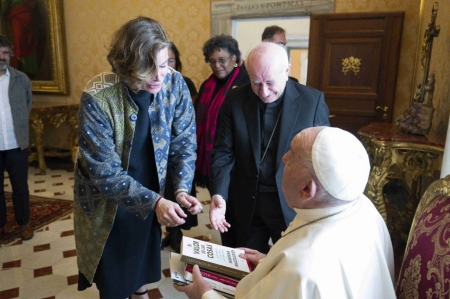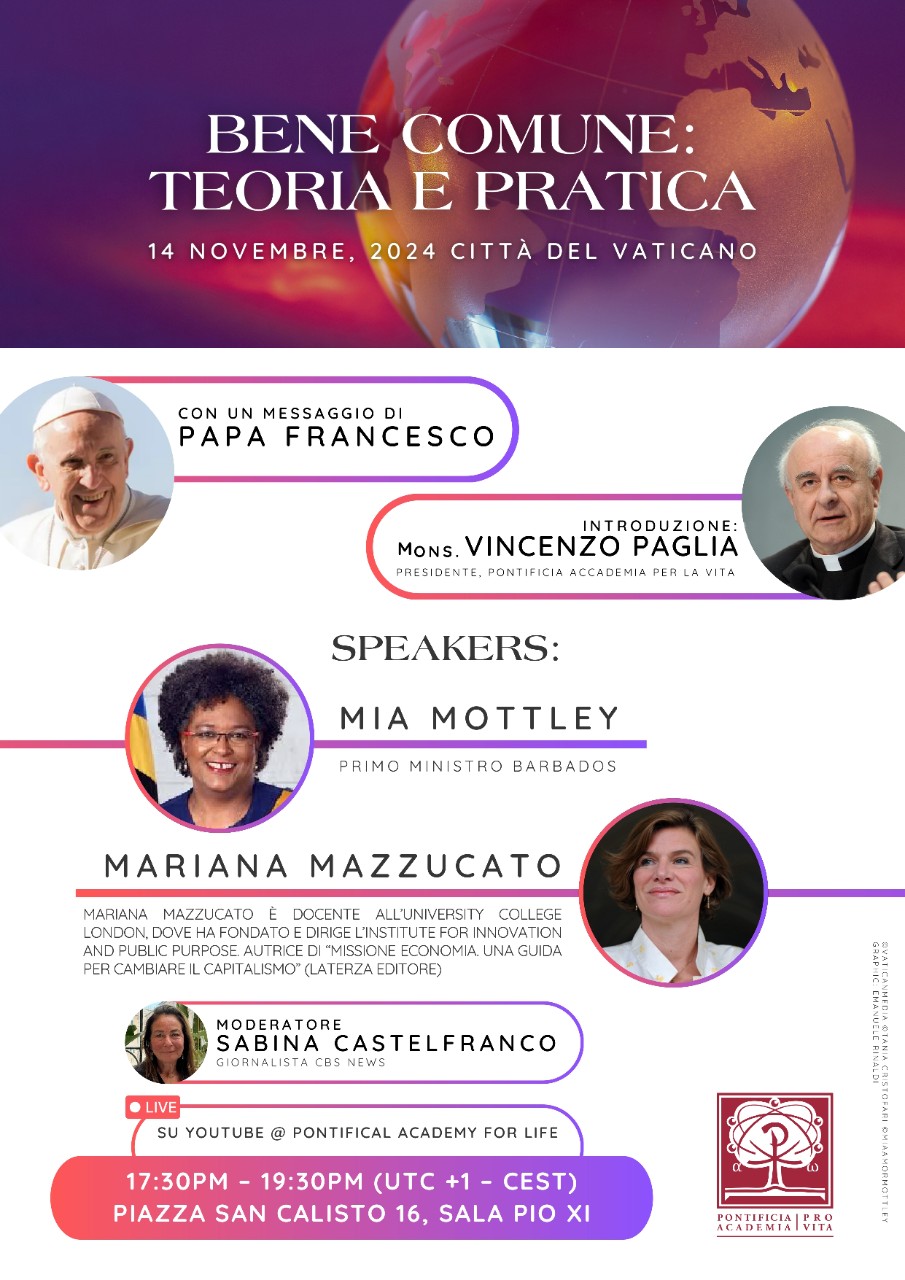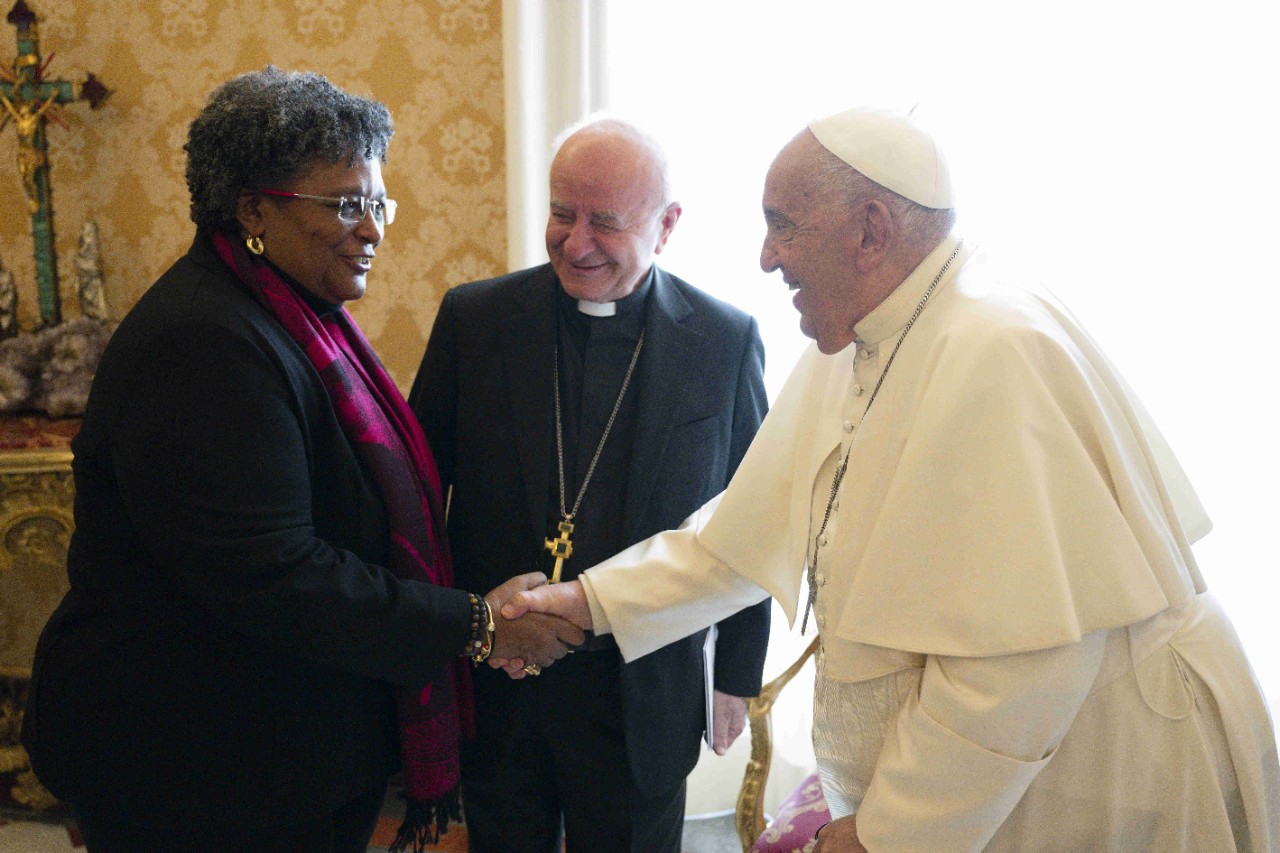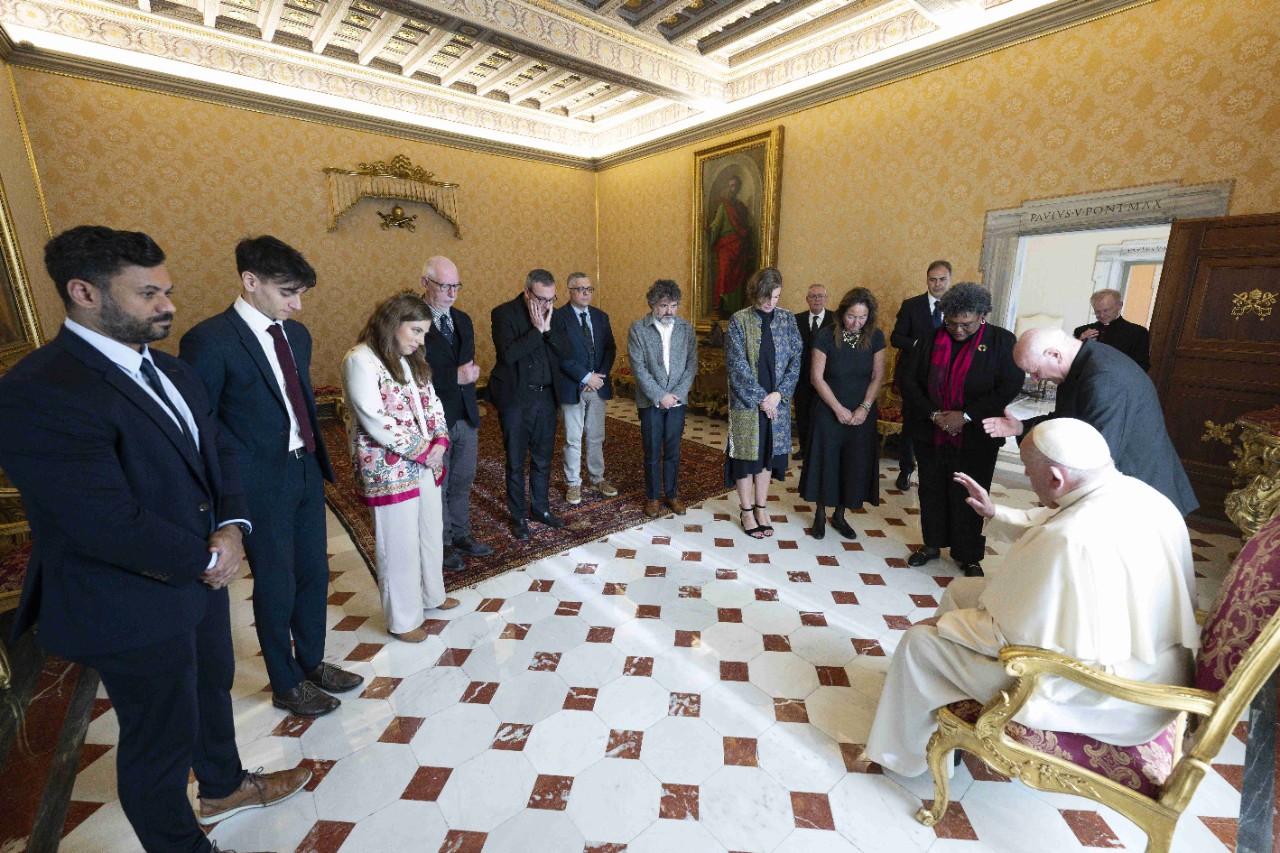Bene Comune: Teoria e Pratica

Bene Comune: Teoria e Pratica
È possibile una economia che prenda sul serio il tema del Bene Comune?
Giovedì 14 novembre dalle 17.30 alle 19.30 ne hanno discusso la Primo Ministro delle Barbados, Mia Mottley e l’economista Mariana Mazzucato.
La conversazione è stata moderata da Sabina Castelfranco, giornalista CBS News.
Good afternoon and welcome to all of you present this afternoon for this event “Common Good: Practice and Theory” which will see a dialogue with two most influential and interesting ladies: the Prime Minister of Barbados Mia Amor Mottley and Professor in Economics of Innovation and Public Value at University College London, Mariana Mazzucato. She is also a member of the Pontifical Academy for Life, an institution founded in 1994 dedicated to promoting the Church’s consistent life ethic and which is also involved in related research on bioethics and moral theology. Before providing a more detailed introduction of our speakers let me first thank the President of the Academy, Archbishop Vincenzo Paglia, for hosting us here for this special occasion and rare opportunity to hear these two exceptional ladies hold an important conversation for today’s world. To begin with, Monsignor Paglia has some opening remarks before reading a message from Pope Francis for this event.
Thank you Mons. Paglia, I would now like to say some words about our two speakers before handing over to them.
Mia Amor Mottley became Barbados 8th and first female prime minister in May 2018 and was re-elected in 2022. She was first elected to the parliament of Barbados in Sept 1994, one of the youngest persons ever to be assigned a ministerial portfolio, she was appointed Minister of Education, Youth Affairs and Culture, later she served as attorney general, deputy prime minister and leader of the opposition before she became prime minister.
In addition to her responsibility as head of the government in Barbados Ms Mottley is known throughout the world for her influential leadership in fighting climate change and financing the global transition to a stable economy, but also as a voice on development, equity, and the sharing of public goods.
Mariana Mazzucato, as I mentioned earlier, is Professor in the Economics of Innovation and Public Value at University College London where she is the founding director of the UCL Institute for Innovation and Public Purpose. She is one of the world’s most influential economists. Her work challenges orthodox thinking about the role of the state and the private sector in driving innovation; how economic value is created, measured and shared; and how market-shaping policy can be designed in a ‘mission oriented way’ to solve the grand challenges facing humanity.
Professor Mazzucato also acts as an advisor to a wide range of governments and organizations around the world.
I am now delighted to hand over to our speakers and then we will have a conversation.
Prime Minister and Professor, the floor is yours.
Thank you both. Let us now open this conversation. We live in a world today that faces a variety of crises which are inter-connected, including climate, biodiversity, water and health. To tackle these now urgent issues let us consider and discuss how a new economics of the common good can help create well-designed and much-needed action.
But first let me ask you both about your exchanges with Pope Francis today. You both had an opportunity to meet with him privately at the Vatican. Prime Minister: you have just returned from Baku where you spoke at the COP29 and it is evidence to all that this has been a year of extremes. Was climate, among others, an issue you spoke to the pope about.
And Professor Mazzucato what can you share with us of your meeting with Pope Francis?
Thank you Prime Minister Mottley and Professor Mazzucato for this enlightening conversation. After the recent COP29 in Azerbaijan, the next big opportunity for countries to come together and collectively discuss how to reform the international financial architecture will be at the 4th International Conference on Financing for Development, to be held in Seville, Spain from June 30 to July 3rd of next year. No doubt eyes will also be on the G20 summit that will be held in Rio de Janeiro, Brazil next week to see what emerges from that.
Again before closing this meeting I would like again to thank Archbishop Paglia and all of the staff at the Pontifical Academy for Life who worked to make this event take place. I thank all participants and wish everyone a very good evening.






